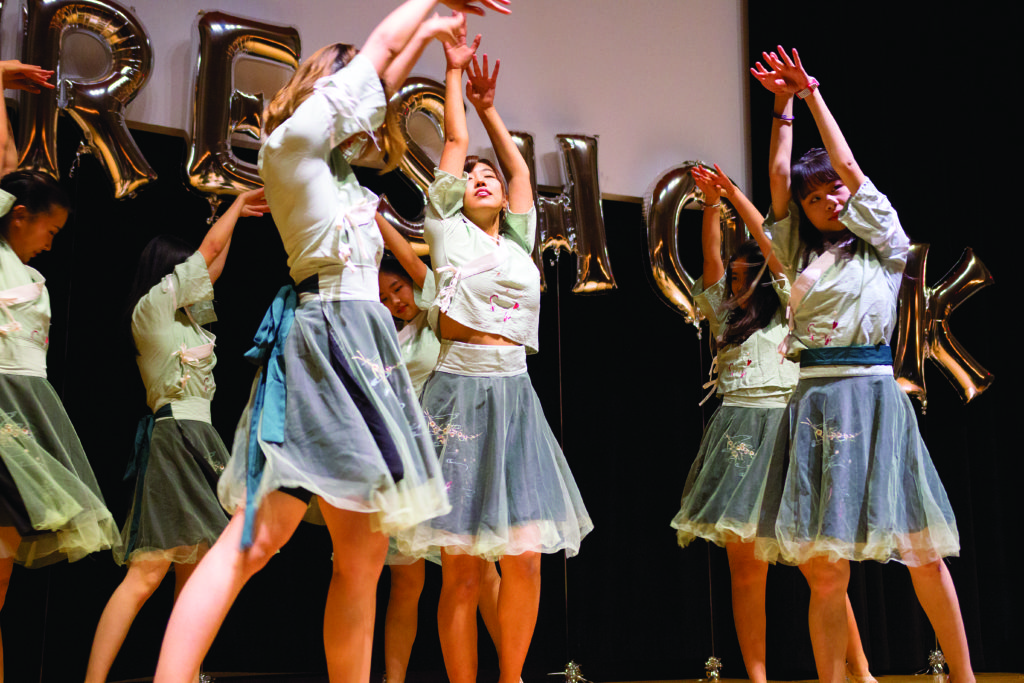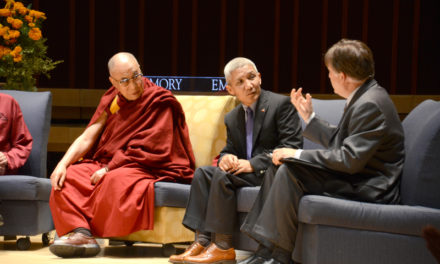Actress and producer Diarra Kilpatrick questioned whether colleges are truly integrated or if they’re just settings in which diverse groups of people exist alongside each other at this past weekend’s Culture Shock Nov. 10.
“We get in the habit of seeing people that are like ourselves because we assume that we have something in common with them,” Kilpatrick said. “Imagine if you looked around this room and you assumed that you had something in common with every single person in here.”
The actress encouraged students to try to find commonalities with people to bridge the divide between being diverse and being integrated and discussed incorporating humor to address tough issues such as race relations and provided more than more than 280 students with advice on how to be more inclusive and “woke.”
Kilpatrick co-created, produced, directed and starred in an original web series titled “American Koko,” which discusses racial issues through satire and comedy. The series was originally produced for Kilpatrick’s YouTube channel, but it caught the attention of Academy Award-winner Viola Davis, who, with her husband, Julius Tennon, produced the second season of the series for ABC Digital this year.
In her keynote speech, Kilpatrick offered three “tips for the woke,” students who want be more inclusive and celebrate one another. She advised the audience members to be aware of their “blind spots” or places where they may have prejudices toward others that may not be immediately apparent.
For example, she said, when she was creating a new love interest for protagonist Koko in the second season of “American Koko,” she wanted the character to be “confident and sexy.” Based on that character description, she said her her first inclination was to cast a black male. However, after she read an article that stated that Asian males and black females were the least desired on dating apps, she decided to cast an Asian male in the role of the new character.
Kilpatrick said that people have a tendency to jump to assumptions about people based on stereotypes, and she believes that “checking your blind spot” can help people be aware of the prejudices they may hold against others.
She also advised the audience to “grow up” and recognize that not everything will be about you in community settings, adding that there will be times in diverse environments when you may celebrate a race, religion or culture that has nothing to do with you. Rather than focusing on these differences, Kilpatrick recommended students search for commonalities they may have with people they perceive to be different from them. Kilpatrick’s final tip was to remember to love yourself, as she believes self-love is a fundamental part of being a good member of a community.
“If you feel insecure about yourself, you will always feel threatened by someone who is different than you,” Kilpatrick said.
Kilpatrick also encouraged students to build relationships with people of different races so that they could engage in conversations about race.
“Once you have a relationship with someone that is based on a true friendship that’s based on commonalities, then you can ask them some burning question you have about race,” Kilpatrick said. “I think [asking a question] without care or sincerity is probably not a good idea.”
Kilpatrick said that the best way to become more informed on the race and culture of others is through the arts. She sees the arts as one of the best ways that a person can cultivate empathy for someone else.
This event marked the fifth annual Culture Shock, an event hosted by College Council (CC) and intended to celebrate and promote cultural diversity at Emory.
Prior to Kilpatrick’s speech, student organizations including Emory’s only all-female a cappella group The Gathering and hip-hop dance group Persuasion performed. The event also included a display of student visual art and food from different cultural organizations.
Wendy Lee (19C) said that she enjoyed the food at the event and that variety of foods “helps culture stick in people’s minds and hearts better.”
Shivani Mehta (20C) said that she appreciated how the speaker found humor in addressing race issues, which can sometimes be hard to talk about.
“I loved how Diarra talked about taboo issues such as race because it brings to light the importance of these issues but in the best way possible,” Mehta said.
valerie.sandoval@emory.edu | Valerie Sandoval (20C) is from Greenville, S.C., and is majoring in economics and political science. In addition to the Wheel, Valerie is on the women’s ultimate frisbee team.





